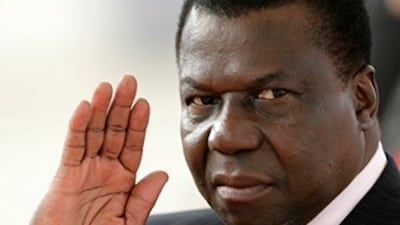João Bernardo Vieira, the president of Guinea-Bissau for 23 years of its 29-year history, described himself as "God's gift" to the tiny West African state. He was anything but. Ranked by the UN as one of the world's poorest countries, the ex-Portuguese colony is racked by poverty and ethnic tensions. Increasingly preyed upon by South American drug cartels, who have infiltrated its politics and used the uninhabited islands that dot its coastline as a staging post to smuggle cocaine from Africa to Europe, it is infamous as Africa's first "narco-state". The drug trade dominates the country's disastrous economy, once barely sustained by the export of cashew nuts.
During last year's parliamentary elections, Vieira's political rival, Kumba Yalá, referred to the president as the country's "biggest drug trafficker". There was little that Vieira could say in his defence. He was assassinated last Monday hours after his archrival, Gen Batista Tagme Na Waie, was killed in a bomb blast at army headquarters. To many commentators, this was no coincidence: the long history of animosity between the president and the general, fuelled by ethnic and political differences, had sporadically erupted into violence. Vieira was from the minority coastal Papel ethnic group; the general - as the majority of the military - was a Balante, the dominant group of Guinea-Bissau's interior.
Resentment of the president ran high among the army, with a series of coups punctuating Vieira's increasingly authoritarian rule, including, most recently, an attempt on his life in November. In January, he was widely suspected of orchestrating an attempted assassination of Na Waie in retaliation. Born in Bissau, then a city in Portuguese Guinea, Vieira trained as an electrician before joining the African Party for the Independence of Guinea and Cape Verde (PAIGC) in 1960. Known as Niño (Boy) on account of his youth, he rapidly gained a reputation as a skilled military leader.
The nationalist guerrillas of the PAIGC, armed by Cuba, China and the Soviet Union, spent more than a decade agitating for independence. Uniquely in Portugal's former colonies, they managed to gain control of large areas of the country. In 1974, Luís Cabral - brother of the renowned Amílcar, the founder of the PAIGC - became the first prime minister of Guinea-Bissau. Vieira was appointed prime minister in 1978. Yet, with the loss of a common enemy, fractures appeared within the party and combined with the deterioration of economic conditions to exacerbate ideological tensions.
In 1980, Vieira exploited the dissent to seize the presidency in a bloodless coup. Under his leadership, the party veered away from its founding Marxist principles. He suspended the constitution and drafted a new one before restoring civilian rule. During the mid-1980s, after yet another coup was foiled, Vieira condemned several Balante officers to death in an attempt to purge the military of his enemies, showing no clemency despite an appeal from Pope John Paul II. Na Waie was sent into exile on a deserted island off the coast, but later, fatefully, rehabilitated.
As sub-Saharan Africa moved towards multiparty democracy during the 1990s, Vieira called elections. Unsurprisingly, in 1994, he was voted president. Four years later, the country imploded into civil war provoked by his dismissal of Ansumane Mané, his popular military chief of staff. Exiled in Portugal and expelled from the party on charges of treason, incredibly in 2005, Vieira was again elected president after a military coup in 2003 toppled his successor, Kumba Yalá.
Born April 27, 1939. Died March 2, 2009. * The National

